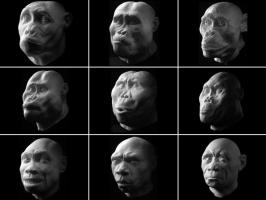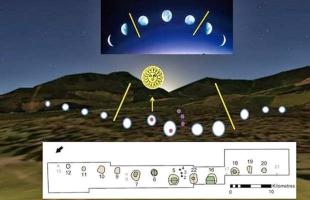Copy Link
Add to Bookmark
Report
AIList Digest Volume 8 Issue 139

AIList Digest Friday, 16 Dec 1988 Volume 8 : Issue 139
Announcements:
ES Shell Newsgroup
CFP - INTERFACES: Systems and People Working Together
2nd National Conference on AI and CogSci - Dublin, Ireland
CFP - 11th Annual Conference of the CogSci Society - Ann Arbor, Michigan
INTERFACE Special Issue on Music and Dynamic Systems
Memory/Attention: BBS Call for Commentators
Motor Control: BBS Call for Commentators
----------------------------------------------------------------------
Date: 12 Dec 88 12:33:37 GMT
From: "Bernd Bachmann" <unido!uklirb!lisplog@uunet.UU.NET>
Reply-to: "Bernd Bachmann" <unido!uklirb!lisplog@uunet.UU.NET>
Subject: Shell Newsgroup
AN INFORMAL PROPOSAL FOR A NEWSGROUP ON EXPERT SYSTEM SHELLS
Bernd Bachmann, Harold Boley, Norbert Kratz, Robert Rehbold,
Michael M. Richter, Peter Spieker, Thomas Wetter
Paper address: FB Informatik, Univ. 675 Kaiserslautern, Box 3049, W. Germany
Email address: lisplog@uklirb.uucp
In previous years 'expert systems' (also known as 'knowledge based
systems') have moved from AI laboratories to the marketplace. These
XPS are frequently implemented with the aid of expert system shells
(abbreviated 'shells' in the following). Due to this fact more and more
developers, analysts and users are involved with shells and related
fields. Therefore time seems ripe to start a new (moderated)
newsgroup, which could discuss and inform about several topics:
- Develop a systematic terminology for discussing 'expert systems'
and 'expert system shells': Which components should it include? Where
are the boundaries between shells and other intelligent (?!) software
tools like LISP-PROLOG integrations, database query languages,
graphics interfaces etc.
- Collect information that helps people in companies and universities
to decide which shell or group of shells is most suitable for
successful application in their specific domain. While watching the
newsgroups already involved in AI one can notice a great interest in
this topic, but nevertheless a lack of condensed information on how to
select an appropriate shell is obvious.
- Inspire developers to take into account the requirements of AI
programmers, knowledge engineers and end users, employing the shells.
- Discuss existing shells. Very often shells provide a 'glittering'
user interface that hides the essential capabilities of the product.
Discussing this topic could help to move the point of view from the
surface to the 'kernel', which should include the AI methods of
knowledge representation schemes and inference or search mechanisms.
The above topics only cover a small part of the wide range of the AI
subfield of 'expert system shells'. A lot of interesting questions and
problems that should be discussed may be found spontaneously.
We suggest to install a new newsgroup called comp.ai.shells, which we
would be willing to start moderating. In our opinion, moderation is
necessary to prevent the newsgroup from being used as an advertising
medium and to prevent contributions of limited interest ("Who has the
source of shell ... in Palo Alto?"; "Who has worked with shell ... in
Kaiserslautern?"; etc.). Nevertheless companies will be invited to
participate actively in the discussion, especially if their products
contain new aspects or are of academic interest.
Additionally our aim is to continue the compilation of a bibliography
on 'expert system shells', based on the following procedure: Everybody
is invited to email or post appropriate references to us in a format
that can be used by the UNIX 'refer' utility (if you are not familiar
with 'refer', please consult the UNIX manual). The incremental changes
of the bibliography will be periodically posted to the newsgroup. All
users on each site can append them as ASCII files to their previously
collected references. The bibliography can then be used by UNIX
utilities to be 'pretty printed' (in the normal bibliography format)
or to be sorted or searched using various keys.
If you have any remarks (pros or cons) about the general proposal or
its specific topics, please send them to the above email address. In
case you need further information, please do include your physical
("paper") address.
If the proposal is of common interest we will post a formal call for
votes to news.groups and comp.ai.digest.
------------------------------
Date: Mon, 12 Dec 88 17:08:08 -0500
From: mitchell%community-chest.mitre.org@gateway.mitre.org
Subject: CFP - INTERFACES: Systems and People Working Together
***** CALL FOR PAPERS AND PARTICIPATION *****
28th Annual Technical Symposium of the Washington, D.C. Chapter of the ACM
INTERFACES: Systems and People Working Together
National Institute of Standards and Technology
Gaithersburg, Maryland - August 24, 1989
No computer is an island. Increasingly, systems are being tied together
to improve their value to the organizations they serve. This symposium will
explore the theoretical and practical issues in interfacing systems and in
enabling people to use them effectively.
*** SOME TOPICS OF INTEREST FOR SUBMITTED PAPERS ***
* HUMAN FACTORS *
User interfaces Meeting the needs of handicapped users
Conquering complexity Designing systems for people
Intelligent assistants The human dimension of information interchange
* SYSTEMS INTEGRATION *
Communications networks Distributed databases
Data standardization System fault tolerance
Communications standards (e.g. GOSIP)
* STRATEGIC SYSTEMS *
Decision support systems Embedding expert systems in information systems
Strategic info systems Computer Aided Logistics Support (CALS)
* SYSTEM DEVELOPMENT AND OPERATION *
Quality control and testing Designing a system of systems
System management Conversion and implementation strategies
Software tools and CASE Identifying requirements thru prototyping
* ENABLING TECHNOLOGIES FOR APPLICATIONS PORTABILITY *
Ada Database management
Open software Open protocol technology
Operating systems (e.g., POSIX)
==> DON'T BE LIMITED BY OUR SUGGESTIONS - MAKE YOUR OWN!
Both experienced and first-time authors are encouraged to present their
work. Papers will be refereed. A length of 10 to 20 double-spaced pages is
suggested.
Those presenting a paper are entitled to register for the symposium at
the early advance registration rate.
To propose special sessions or noncommercial demonstrations, please send
three copies of an extended abstract to the Program Chairman at the address
below.
Note: A paper must include the name, mailing address, and telephone
number of each author or other presenter. Authors of accepted papers must
transfer copyright to ACM for material published in the Proceedings (excepting
papers that cannot be copyrighted under Government regulations).
The ACM policy on prior publication was revised in 1987. A complete
statement of the policy appears in the November 1987 issue of Communications
of the ACM. In part it states that "republication of a paper, possibly
revised, that has been disseminated via a proceedings or newsletter is
permitted if the editor of the journal to which it has been submitted judges
that there is significant additional benefit to be gained from republication."
*** SCHEDULE ***
March 2, 1989 Please send five copies of your paper to the Program Chairman:
Dr. Milton S. Hess
American Management Systems, Inc.
1525 Wilson Boulevard
Arlington, VA 22209
April 13, 1989 Acceptance notification
June 22, 1989 Final camera ready papers are due
August 24, 1989 Presentation at the symposium
If you have any questions or suggestions, please contact:
Symposium General Chairman: Charles E. Youman, The MITRE Corporation,
(703) 883-6349 (voice), (703) 883-6308 (FAX), or youman@mitre.org (internet).
Program Chairman: Dr. Milton Hess, American Management Systems, Inc.,
(703) 841-5942 (voice) or (703) 841-7045 (FAX).
NIST Liaison: Ms. Elizabeth Lennon, National Institute of Standards and
Technology (formerly the National Bureau of Standards), (301) 975-2832 (voice)
or (301) 948-1784 (FAX).
------------------------------
Date: Tue, 13 Dec 88 09:51:11 GMT
From: Gabriel McDermott <GMCDEH88%IRLEARN.BITNET@MITVMA.MIT.EDU>
Subject: 2nd National Conference on AI and CogSci - Dublin, Ireland
2nd National Conference of
Artificial Intelligence and Cognitive Science
The School of Computer Applications, NIHE Dublin, Ireland, in conjunction with
the Artificial Intelligence Association of Ireland (AIAI) are holding the
second national conference on Artificial Intelligence and Cognitive Science
(AI/CS-'89) at the NIHE Dublin from the 14th to 15th September 1989.
Contributions are asked for in the following areas (not exclusive):
* AI Tools and Technologies.
* Natural language, Machine Translation, Speech Understanding
and Generation.
* Perception, vision, robotics.
* Intelligent tutoring systems.
* Design, manufacturing and control.
* Cognitive modeling.
* Common Sense Reasoning.
* Knowledge Representation.
* Planning, scheduling, reasoning about actions.
* Knowledge acquisition, learning, analogy.
* Automated deduction.
* Philosophical foundations.
* Social Implications.
When submitting, please include three copies of paper. Your paper should be
clearly typed on A4 and length should be no longer than 10 pages.
Important Dates
Submission Deadline 1 July 1988
Acceptance Notification 1 August 1988.
Conference Dates 14-15 September 1989.
Send all material to:
Alan F. Smeaton,
Chairman,
AI/CS -- `89,
School of Computer Applications,
N.I.H.E.,
Dublin 9,
Ireland.
------------------------------
Date: 14 Dec 88 20:59:03 GMT
From: visel@csmil.umich.edu (Suzanne Visel)
Reply-to: visel@csmil.umich.edu (Suzanne Visel)
Subject: CFP - 11th Annual Conference of the CogSci Society
CALL FOR PAPERS
The Eleventh Annual Conference of the Cognitive Science Society
August 16-19, 1989
University of Michigan
Ann Arbor, Michigan
The Eleventh Annual Conference of the Cognitive Science Society will be held
August 16-19, 1989 at the University of Michigan in Ann Arbor, Michigan. This
precedes the IJCAI meeting in Detroit the following week. The Conference will
feature symposia and invited speakers on such topics as induction, decision
theory, situated cognition, applications of cognitive science, language
processing, problem solving, cognitive development and parallel distributed
systems. The Conference schedule will include paper sessions, symposia, and a
poster session covering the full range of the cognitive sciences. This year,
for the first time, a pre-conference tutorial will be offered.
Organizing Committee:
Gary M. Olson
Director, Cognitive Science and
Machine Intelligence Laboratory
University of Michigan
Edward E. Smith
Professor of Psychology
University of Michigan
Call for Papers
You are invited to submit papers for paper presentations, symposia and poster
sessions. These should cover original unreported theoretical or empirical
research related to cognition. All submissions for paper and poster sessions
and symposia will be refereed. The Proceedings of the Conference will be
published by Lawrence Erlbaum Associates.
Send submissions to:
Gary M. Olson
Cognitive Science and Machine Intelligence Laboratory
701 Tappan Street
Graduate School of Business
University of Michigan
Ann Arbor, Michigan 48109-1234
Inquiries:
E-mail address: gmo@csmil.umich.edu
Phone: (313) 747-4948
All submitted papers must include the following:
Four copies of the full paper (8 pages maximum including tables, figures,
references and a 250 word abstract).
Preference for poster or paper presentation.
Please include your electronic mail address.
Important Dates:
Submission deadline: March 31, 1989
Acceptance notification: May 1, 1989
Final version due: May 26, 1989
Tutorial: Wednesday, August 16, 1989
Conference: Thursday-Saturday, August 17-19, 1989
------------------------------
Date: Thu, 15 Dec 88 10:46 N
From: MUSICO%BGERUG51.BITNET@MITVMA.MIT.EDU
Subject: INTERFACE Special Issue on Music and Dynamic Systems
INTERFACE Call for Commentators and/or Original Contributions.
--------------------------
MUSIC AND DYNAMIC SYSTEMS
=========================
INTERFACE - Journal of New Music Research - is an
international journal published by Swets & Zeitlinger B.V.,
Lisse, The Netherlands (this year vol. 17). It is devoted to the
discussion of all questions which fall into the borderline areas
between music on the one hand, physical and human sciences or
related technologies on the other hand. New fields of research,
as well as new methods of investigation in known fields receive
special emphasis.
INTERFACE is planning a special issue on MUSIC AND DYNAMIC
SYSTEMS. The motivation comes from two sources :
First there is the renewed interest in Dynamic Systems
Theory from the point of view of massive parallel computing and
artificial intelligence research. Massive parallel techniques
and technology have very recently been applied to music
perception/cognition and to strategies for automated
composition. The approach is an alternative to the classical
symbol-based approaches to cognition and problem solving and it
is believed that it may establish a new paradigm that dominates
research for the coming decennia.
The second motivation comes from a recently received
original contribution to INTERFACE by two Romenian scientists :
Cosmin and Mario Georgescu. They propose a system approach to
musicology based on the General Systems Theory. The paper ("A
System Approach to Music") is challenging in that it raises a
number of methodological problems (e.g. problems of verification)
in musicology. The authors claim that "The paper should be
considered primarily as an exposition of principles and as an
argument in favour of the credibility degree of the system
approach in musicology. The change of this approach into an
effective analysis tool for musical work is a future task that
goes beyond the aim of this paper.".
However, General Systems Theory is by no means the only
possible application of Systems Theory to music. The massive
parallel approach in computing and the application of Dynamic
Systems Theory to the field of music perception and cognition,
automated compositional strategies, or historical musicology
allows new insights in our understanding and comprehention of the
complex phenomenon which we all admire. How far can we go in
modeling the complex dynamics of MUSIC?
--------------------------
- Contributions to this special issue of INTERFACE on MUSIC AND
DYNAMIC SYSTEMS may be sent to Marc Leman before june 30
(publication of this issue is planned in the fall of 1989).
- Commentators interested in the Georgescu's paper (61pp.) may
ask for a copy.
---------------------------
Please send your correspondence for this issue to :
Marc Leman (editor)
University of Ghent
Institute for Psychoacoustics and Electronic Music
Blandijnberg 2
B-9000 GHENT
Belgium
e-mail : musico@bgerug51.bitnet
The address of the publisher is :
Swets Publishing Service
Heereweg 347
2161 CA Lisse
The Netherlands
------------------------------
Date: 14 Dec 88 14:44:02 GMT
From: elbereth.rutgers.edu!harnad@rutgers.edu (Stevan Harnad)
Subject: Memory/Attention: BBS Call for Commentators
Below is the abstract of a forthcoming target article to appear in
Behavioral and Brain Sciences (BBS), an international,
interdisciplinary journal that provides Open Peer Commentary on important
and controversial current research in the biobehavioral and cognitive
sciences. Commentators must be current BBS Associates or nominated by a
current BBS Associate. To be considered as a commentator on this article,
to suggest other appropriate commentators, or for information about how
to become a BBS Associate, please send email to:
harnad@confidence.princeton.edu or write to:
BBS, 20 Nassau Street, #240, Princeton NJ 08542 [tel: 609-921-7771]
____________________________________________________________________
THE ROLE OF ATTENTION IN AUDITORY INFORMATION PROCESSING
AS REVEALED BY EVENT-RELATED POTENTIALS
Risto Naatanen
Department of Psychology
University of Helsinki
Helsinki, Finland
This target article examines the roles of attention and automaticity in
auditory processing as revealed by event-related potential (ERP)
research. An ERP component called the "mismatch negativity" indicates
that physical and temporal features of auditory stimuli are fully
processed whether or not they are attended. It also suggests that there
exists a mechanism of passive attention switching with changes in
repetitive input. ERPs also reveal some of the cerebral mechanisms by
which acoustic stimulus events produce and control conscious
perception. The "processing negativity" component implicates a
mechanism for attending selectively to stimuli defined by certain
physical features. Stimulus selection occurs in the form of a matching
process in which each input is compared to the "attentional trace," a
voluntarily maintained representation of the task-relevant features of
the stimulus to be attended.
--
Stevan Harnad INTERNET: harnad@confidence.princeton.edu harnad@princeton.edu
srh@flash.bellcore.com harnad@elbereth.rutgers.edu harnad@princeton.uucp
BITNET: harnad@pucc.bitnet CSNET: harnad%princeton.edu@relay.cs.net
(609)-921-7771
------------------------------
Date: 14 Dec 88 15:13:03 GMT
From: elbereth.rutgers.edu!harnad@rutgers.edu (Stevan Harnad)
Subject: Motor Control: BBS Call for Commentators
Below is the abstract of a forthcoming target article to appear in
Behavioral and Brain Sciences (BBS), an international,
interdisciplinary journal that provides Open Peer Commentary on important
and controversial current research in the biobehavioral and cognitive
sciences. Commentators must be current BBS Associates or nominated by a
current BBS Associate. To be considered as a commentator on this article,
to suggest other appropriate commentators, or for information about how
to become a BBS Associate, please send email to:
harnad@confidence.princeton.edu or write to:
BBS, 20 Nassau Street, #240, Princeton NJ 08542 [tel: 609-921-7771]
____________________________________________________________________
ON THE FUNCTION OF MUSCLE AND REFLEX PARTITIONING
Uwe Windhorst (Physiology, Gottingen University)
Thomas M. Hamm (Barrow Neurological Institute)
Douglas G. Stewart (University of Arizona)
Localized stretch reflexes, the partitioning of sensory input for
muscles, and the partitioning of segmental pathways to motor nuclei
have been demonstrated in the mammalian neuromuscular system. This
suggests that individual motor nuclei and the muscles they innervate
are not homogeneous functional units. Functional analysis of reflex
localization and partitioning suggests that segmental control
mechanisms are based on subdivisions of motor nucleus/muscle
complexes. A partitioned organization of segmental control mechanisms
may provide a number of functional advantages for the control of
neuromuscular systems with complex structure and organization.
--
Stevan Harnad INTERNET: harnad@confidence.princeton.edu harnad@princeton.edu
srh@flash.bellcore.com harnad@elbereth.rutgers.edu harnad@princeton.uucp
BITNET: harnad@pucc.bitnet CSNET: harnad%princeton.edu@relay.cs.net
(609)-921-7771
------------------------------
End of AIList Digest
********************

























